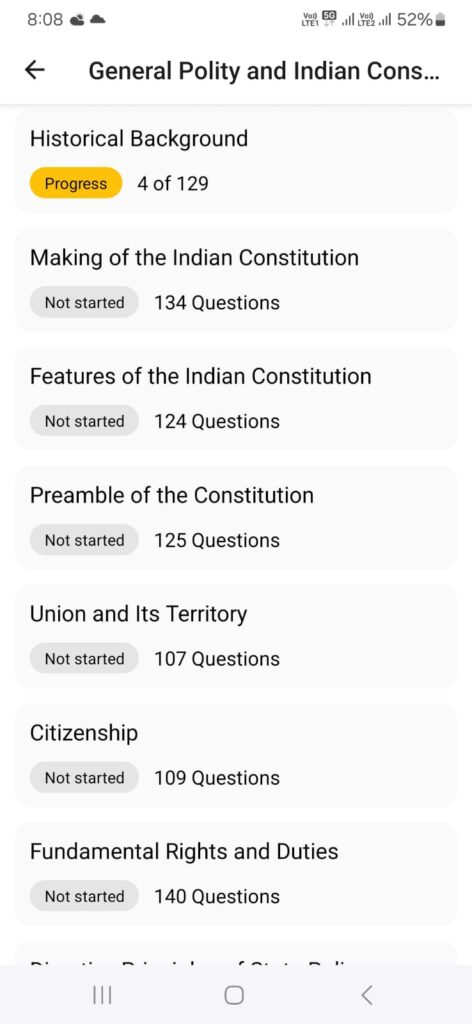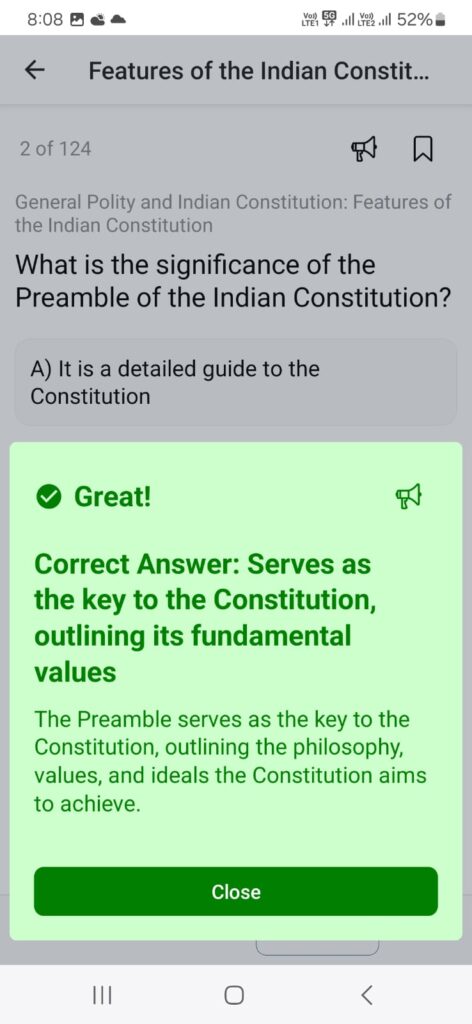Ready for your SSC exams? Our app has all you need: easy study tools, the best materials, and practice tests. Download now to start studying smarter!
Download NowThe Fundamental Rights embodied in the Indian Constitution are the cornerstone of Indian democracy, safeguarding the liberties and rights of individuals against any encroachment by the state. These rights are essential for the personal liberty and human dignity of all citizens and are a critical area of study for aspirants of competitive examinations like the SSC CGL. This blog post provides a detailed exploration of these rights, their implications, and their importance.
What are Fundamental Rights?
Fundamental Rights are a set of rights that have a high degree of protection from encroachments. These rights are defined in Part III (Articles 12 to 35) of the Constitution of India. They guarantee civil liberties such that all Indians can lead their lives in peace and harmony as citizens of India.

Categories of Fundamental Rights
- Right to Equality (Articles 14 – 18):
- Article 14 – Guarantees equality before the law and equal protection of the laws within India.
- Article 15 – Prohibits discrimination on grounds of religion, race, caste, sex, or place of birth.
- Article 16 – Provides equality of opportunity in matters of public employment.
- Article 17 – Abolishes “untouchability” and forbids its practice in any form.
- Article 18 – Abolishes titles except military and academic distinctions.
- Right to Freedom (Articles 19 – 22):
- Article 19 – Guarantees six freedoms, including speech and expression, assembly, association, movement, residence, and profession.
- Article 20 – Provides protection in respect of conviction for offenses.
- Article 21 – Guarantees the right to life and personal liberty.
- Article 22 – Protection against arrest and detention in certain cases.
- Right Against Exploitation (Articles 23 – 24):
- Article 23 – Prohibits human trafficking and forced labor.
- Article 24 – Prohibits child labor in factories, etc.
- Right to Freedom of Religion (Articles 25 – 28):
- Articles 25 to 28 ensure religious freedom and the secular nature of the Indian state.
- Cultural and Educational Rights (Articles 29 – 30):
- Protect the rights of cultural, linguistic, and religious minorities by allowing them to preserve their heritage and culture.
- Right to Constitutional Remedies (Article 32):
- Provides the right to move the Supreme Court (or High Courts) for the enforcement of the rights conferred by this Part.

Importance of Fundamental Rights
Fundamental Rights are not only essential for individual liberty but also crucial for the maintenance of the democratic fabric of the nation. They act as checks and balances on the power of the state and safeguard minorities, ensuring their full participation in the democratic process. These rights are enforceable by the courts, empowering citizens to hold the government accountable.
Understanding the Fundamental Rights is crucial for every Indian citizen and especially for those preparing for competitive exams like SSC CGL. These rights not only form an essential part of the syllabus but also help in fostering a sense of civic duty and responsibility among citizens. As an aspirant, a deep understanding of these rights will not only help you in the examination but will also equip you to be a better-informed citizen.

